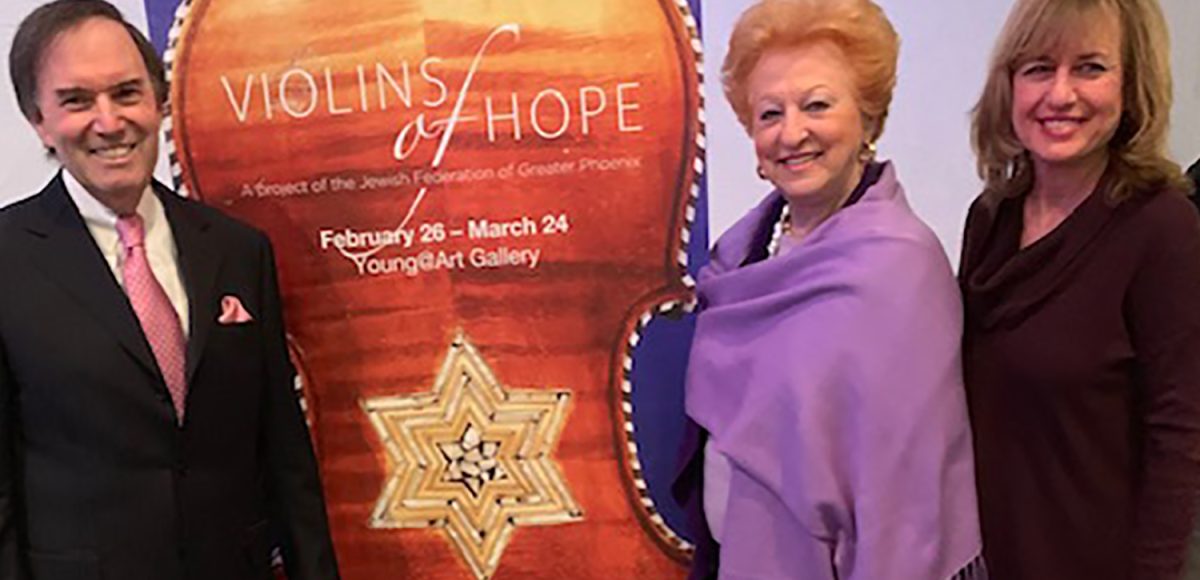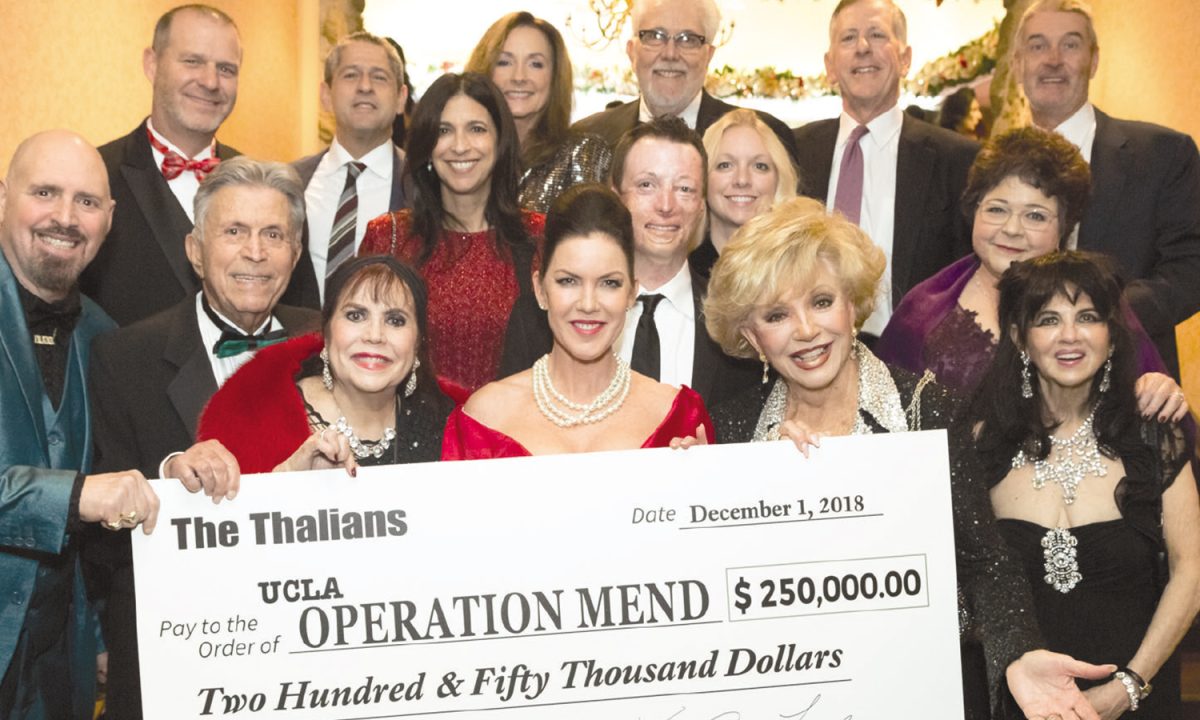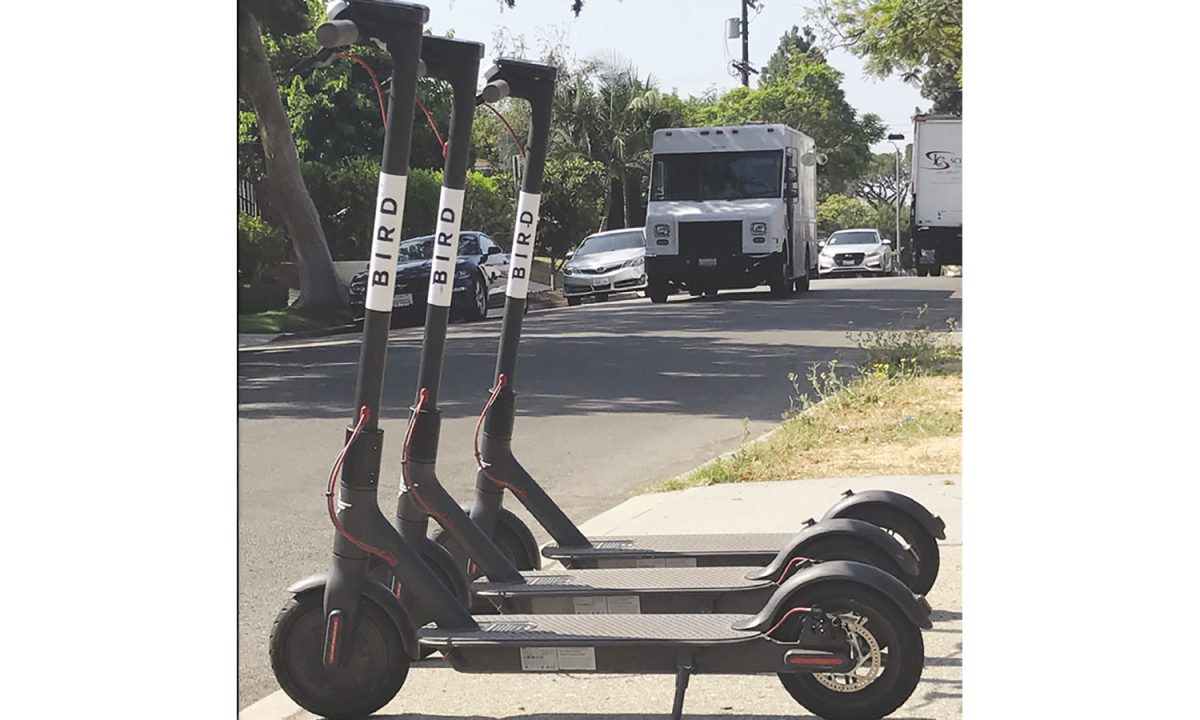Four symphonic orchestras, a major heritage museum and one of Los Angeles’ leading performing arts centers will join forces in 2020 for an ambitious collaborative initiative that will bring to life the sounds of music once lost.
Violins of Hope is an internationally renowned project created to celebrate the triumph of the human spirit. At the heart of Violins of Hope is a collection of more than 60 stringed instruments res-cued from the Holocaust and restored by second-generation violinmaker, Amnon Weinstein, and his son, Avshalom in their shop in Tel Aviv.
The Nazis burned, smashed, looted and confiscated the possessions of mil-lions. But some precious pieces remained. Many musical instruments survived when their owners did not. Many more were lost or abandoned as their owners escaped the war. And when the Allies liberated Europe in 1945, hope remained. For Moshe and Golda’s son, Amnon Weinstein, that hope manifested in the thin wooden bodies of violins, violas and cellos rescued from the Holocaust.
Now, this unique collection will come to L.A. for the first time March 22 to April 26, 2020 for a month-long series of concerts, exhibits, and student educational programming at several L.A. cultural institutions.
Each concert in the Violins of Hope series will feature performers and soloists using instruments from the Weinstein’s collection. “Before each concert the soloist will hold up the instrument to show it’s actually being played,” says Beverly Hills resident Susanne Reyto, the chair of Violins of Hope, Los Angeles County. She is responsible for working with Weinstein to bring the violins to the region. “We’re bringing the voice back to instruments that were silenced.”
Reyto jumped at the opportunity to take part in the program since her mission “is to educate about what transpired and prevent it from happening again.”
Born just six days before the Nazi occupation of Hungary in March of 1944, her childhood experiences and her difficult escape from Communist Hungary in the late 1950s are chronicled in her memoir, Pursuit of Freedom.
“Kids don’t learn history; and to just give historical data is boring. Educating through music and culture penetrates better than a textbook,” says Reyno who served as the chair of the City of Hope Board of Governors, a board member of the Beverly Hills Women’s Club, and president of Hadassah Los Angeles and ZOA Western Region.
She sees the initiative as a three-pronged project with concerts, also fea-turing the Rotterdam Philharmonic with Nelson Freire and the Jerusalem Quartet, the education component with artist-in-residence and Northridge native Niv Ashkenazi, the only individual musician in North American entrusted with one of the collection’s rescued violins, sharing the instrument at more than 40 schools; and an exhibition at the Los Angeles Museum of the Holocaust.
Approximately 30 instruments will come to L.A. including some violas and cellos. Among the violins coming are the Dachau violin, played by an inmate who survived and lived to 88; the Bielski klezmer violin, named for partisans who saved 1,230 Jews during the war; a gypsy violin that was buried in snow, and the Auschwitz violin, owned by an inmate who played in the men’s orchestra–and survived.
“A lot of people don’t realize that Auschwitz had several orchestras,” says Reyto. “There was a popular music orchestra that played at 5 p.m. tea for the officers’ enjoyment.”
For a complete concert schedule and ticket information visit, https://www.the-soraya.org/violinsofhopela.






